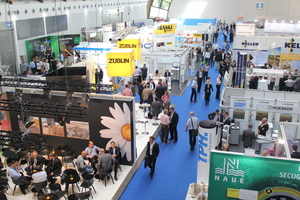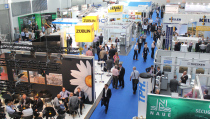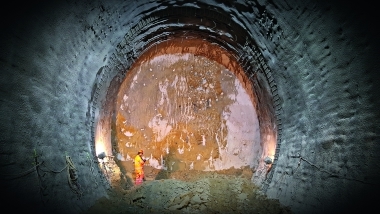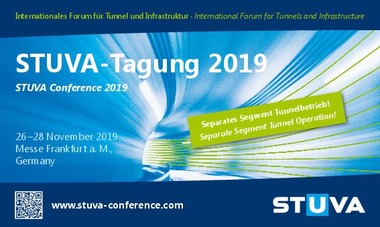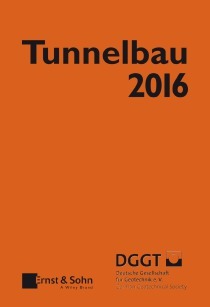34th „Baugrundtagung“ Conference
The 34th Geotechnics Conference “Baugrundtagung” of the German society for geotechnics DGGT with accompanying specialist exhibition took place in September 2016 in Bielefeld. About 1200 participants informed themselves at the two main conference days about current problems and challenges in the field of geotechnics. The subjects covered at the practically oriented programme of talks included the field of tunnelling, with various talks, of which four are presented briefly here:
Cityringen Copenhagen
This talk was concerned with the complex building protection measures for the tunnel drive in the Danish capital, where works have been underway on the extension of the underground rail network since 2011. The „Cityringen“ will be a new underground ring 15.5 km long. At the new crossing station Kongens Nytorv, the tunnel passes over existing tunnels as well as beneath existing buildings with little spacing. Compensation grouting and jet grouting are being used as measures to protect these buildings; historic buildings will be monitored using an automatic water level system.
Emscher Sewer
The largest individual project in the course of the Emscher rebuilding in the Ruhr area in Germany is the Emscher sewer (AKE) from Dortmund to Dinslaken. In addition to the construction of more than 150 construction shafts with diameters up to 28 m and up to 40 m deep (mostly to be used as operating shafts), the main work was the construction of about 51 km of sewer by pipe jacking. The main sewer with an internal diameter of 1.6–2.8 m is being jacked in runs of up to 1200 m. In addition to a presentation of the project and the ground conditions, the essential design elements for the decision of the maximum jacked length were explained. Experience from construction and tunnelling supervision was also described: up to 10 tunnelling machines worked in parallel on this project so that up to 2100 m of sewer could be constructed per month. The AKE should go into operation in 2018.
Steinbühl Tunnel: Tunnelling in Karst
The twin-bore Steinbühl Tunnel is a good 4.8 km long and is being built as part of the Stuttgart–Ulm railway project. It lies in the sometimes heavily karstified ground of the Swabian Albs. The challenge of tunnelling in karst was the main feature of the design, construction and lining of the tunnel. The talk reported how this geological phenomenon was encountered in the course of the tunnel drive in comparison to the forecast and how the investigation concept, which was quite successfully implemented for the tunnel drive, was developed.
Albula Tunnel II: Grouting and Ground Freezing
After more than 110 years of rail operation in the Albula Tunnel, the operator Rhätische Bahn in 2010 decided to build a new tunnel. With a length of 5.86 km, the Albula Tunnel II is being built at a spacing of about 30 m parallel to the existing tunnel, which should serve as a safety tunnel in the future. About 1.2 km from the portal in Preda, it reaches a geological fault zone, the Raibler-Rauwacke, tunnelling through which under an overburden of 200 m is seen as the central problem of the construction project. Part of these Raibler beds is the so-called „Section III“, a formation of running ground formed of silty fine sand under water pressure.
In order to provide pre-support in this 20 m thick zone, 55 grouting holes, 47 ground freezing holes and 24 control and drainage holes up to 58 m deep were drilled horizontally along the tunnel excavation profile and through the fault zone from a cavern. Due to the water pressure of up to 5 bar in the fault zone and in order to minimise the flushing of sediment during construction, all holes were drilled under the protection of preventers and shut-off valves.
In order to form the 2.5 m thick frozen body along the excavation profile, a ground freezing plant with a total cooling capacity of 420 kW was installed in the cavern. Freezing operation was started in summer 2016 in order to be able to start tunnelling in late autumn.
Conference 2018
The 35th “Baugrundtagung” will take place from 26 to 28 September 2018 in the International Congress Center (ICS) in Stuttgart.
Marvin Klostermeier, Redakteur/Editor tunnel

